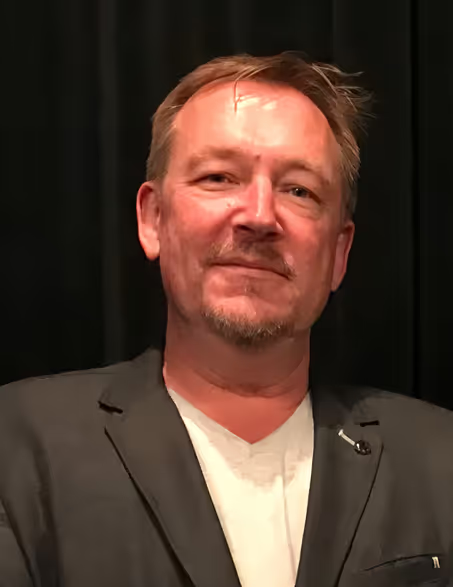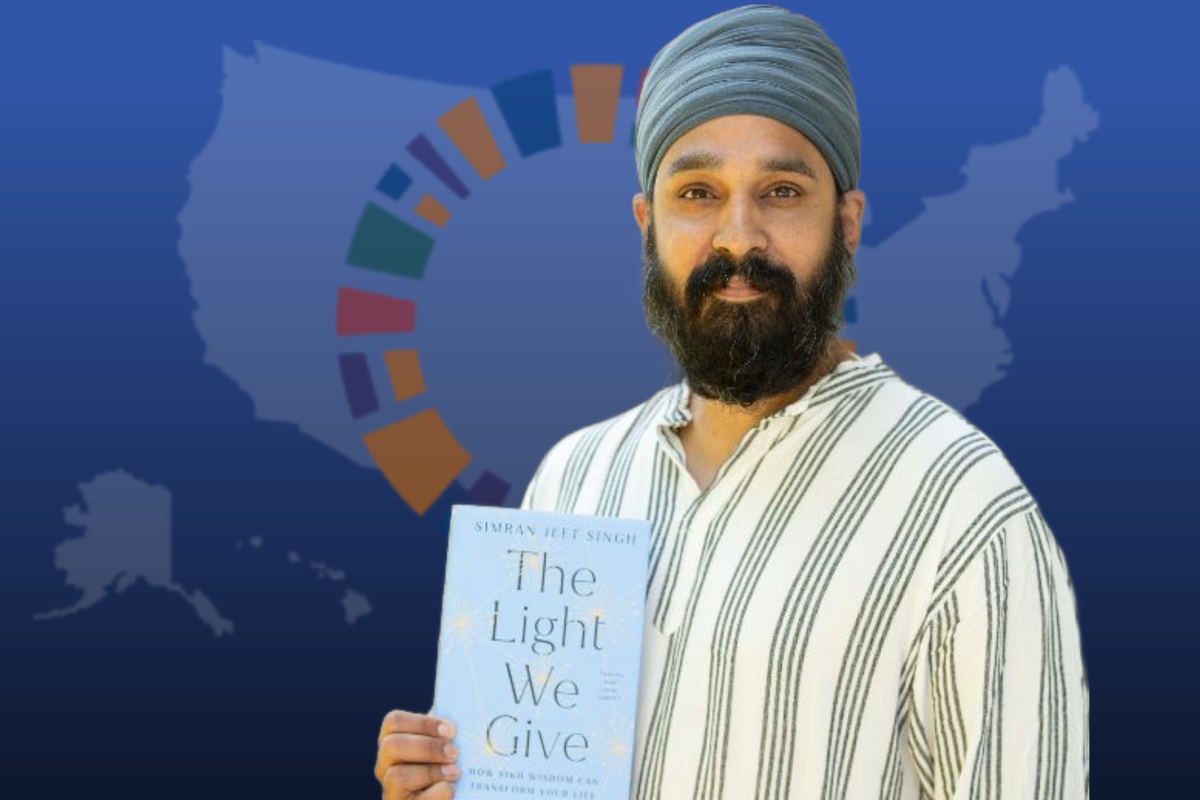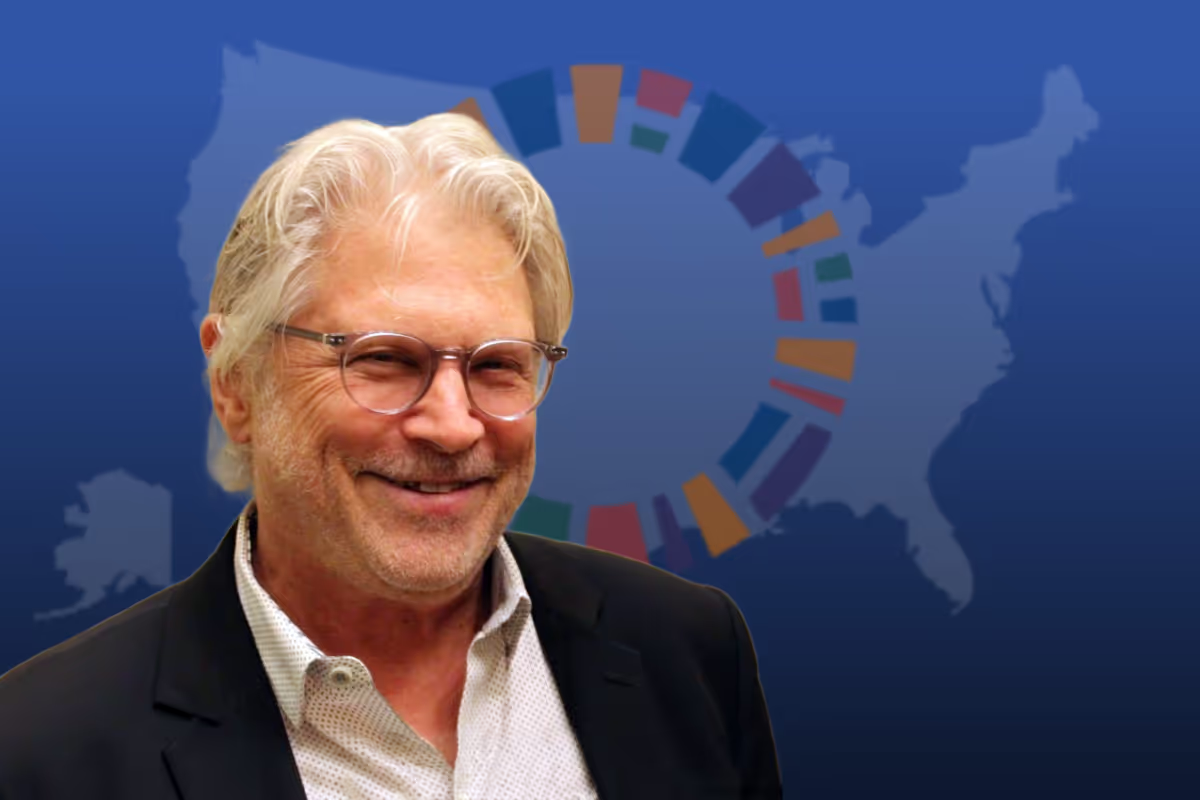
State of Belief
Confronting Antisemitism and Its Weaponization: The Nexus Project's Jonathan Jacoby
This week, host Rev. Paul Brandeis Raushenbush is joined by Jonathan Jacoby, National Director of the Nexus Project. The compelling conversation highlights Jonathan's unique insights on confronting antisemitism and fostering a pluralistic democracy. Drawing from his family history as the descendant of Holocaust survivors and his intrinsic connection to Israel, he provides a thoughtful examination of the challenges that arise when discussing Israel, especially within progressive communities. He makes clear the fine line between legitimate critique and antisemitism, guided by the influential Nexus Document's criteria. By spotlighting crucial distinctions like antisemitic tropes and the problematic imposition of collective responsibility on Jews for Israel's actions, Jonathan champions the power of informed discourse.
The episode also ventures into the complex territory of Jewish identity and advocacy amid the ever-shifting political landscape. Jonathan candidly addresses the emotional and ethical dilemmas tied to Israel's policies, especially concerning Gaza and the potential for a Palestinian state, and how these issues resonate with the broader Jewish community. Highlighting the strength and guidance found in both religious and cultural Judaism, he also emphasizes the indispensable role of interfaith solidarity, particularly between Jewish and Christian communities, in combating antisemitism and advocating for peace. Jonathan's call for perseverance, respect, and open dialogue within the Jewish community itself offers a powerful reminder of the importance of unity and understanding in addressing both internal and external challenges.
About Jonathan Jacoby:
Jonathan is the National Director of the Nexus Project. He was the founding Executive Director of the New Israel Fund and founding President of the Israel Policy Forum. He also held leadership positions at the Jewish Federation of Greater Los Angeles and Americans for Peace Now. Jonathan has pioneered new models for public-private partnerships in the field of rare disease research as a co-founder of SOAR (Support Of Accelerated Research.)
About the Nexus Project:
The Nexus Project works to fight antisemitism, uphold democracy, and protect free speech - and recognizes that these tasks are intertwined. The Nexus team takes all accusations of antisemitism seriously, which is why they also speak out when fears of antisemitism are cynically exploited to stifle legitimate criticism of Israel or US policy. The Nexus Document is a framework for understanding antisemitism, Israel, and Zionism, detailing what does and what does not constitute antisemitism.
We hope you'll take the time to listen - and share this timely episode with at least one person you think would appreciate hearing it!
Transcript
PAUL BRANDEIS RAUSHENBUSH, HOST:
Jonathan Jacoby is National Director of the Nexus Project, an organization committed to combating antisemitism, upholding free speech, and preserving pluralistic democracy in the United States. Jonathan has a long history in social justice work, with roles like founding executive director of the New Israel Fund and the founding executive director of the Israel Policy Forum. Since 2024, he has led the Nexus Project, building on his earlier leadership of the Nexus Task Force, which developed the influential Nexus Document, a resource defining antisemitism in the context of Israe. Jonathan's work centers on navigating the often tense intersection of antisemitism, political criticism of Israel, and democratic freedoms, which rest on the values of religious liberty and civic equity.
This conversation couldn't be more timely. Jonathan, welcome to the State of Belief.
JONATHAN JACOBY, GUEST:
Thank you. Good to be here.
PAUL RAUSHENBUSH:
So let's talk about how you got here, because this is an incredible resume, and you kind of have gone into one of the most difficult conversations - also rewarding, but but challenging conversations - in American life today. Where are you coming from? What is your family background, and how did you arrive at taking such influential positions over the course of the last decades?
JONATHAN JACOBY:
Well, I'm a child of survivors, and I have an enormous commitment to Israel. I think that I inherited from my parents a connection to Israel; a desire, even early on, to live in Israel; and Zionism. My father was the head of the religious Zionist movement B'nai Akiva in Hungary. He met my mother at a B'nai Akiva summer camp, and I think it's just an accident that they didn't end up in Israel. And I grew up with one foot here and one foot there.
I'm also an American, obviously, and very committed to - and have benefited enormously from - living in a democracy, living in a country where Jews experience freedom and prosperity like they never have in their history, really.
When I was working for New Israel Fund the second time - I worked for New Israel Fund twice, and the second time, which was about 10 years ago, I noticed that there were people in progressive circles who were hesitant to talk about Israel. It was like the third rail of progressive politics. I think they were concerned about - maybe actually afraid - that they were going to be labeled antisemitic because of their criticism of Israel, and I thought that was bad for Israel. So my initial thinking was that if, when I ran Israel Policy Forum we were commited to helping to bring about a healthy American diplomatic approach to Israel, which included pressing Israel to reach an agreement, to agree to a compromise with the Palestinians - and I've always believed that external pressure, healthy pressure, loving pressure was important for Israel to be able to make some of the concessions that it was going to need to make.
And if there are elements in American policymaking - in this case, progressive elements - that are shut out of the conversation about what American policy should be, then it hamstrings American policy. And so my initial motivation was to open up the discourse by disentangling what is antisemitic and what's criticism, and that's where I came from.
PAUL RAUSHENBUSH:
And that still remains one of those very important elements of work. One of the things that the Nexus Document was trying to do was to define antisemitism on its own and also in relation to Israel. Can you say a little bit about what the Nexus Document is, and how you understand what antisemitism is in this moment that we're experiencing today?
JONATHAN JACOBY:
Well, I think that a good way to look at this question is not to say, what is and what isn't antisemitic, but to ask the question: when does something become antisemitic, or when is something antisemitic and when is it not? So for example, any time that disagreement with Israel, protest against its policies, meets one of three or four standards, then it's antisemitic.
If it employs an antisemitic trope, if it says Israel's war against Gaza, or if it says Israel's war against Palestinians or the occupation of the West Bank, if it says that they are part of an international Zionist plot, that's antisemitic, because it's using a classic trope.
If the criticism of Israel denies Jews the right to define themselves, which entails the right to self-determination, then that's antisemitic. In other words, it's singling out Jews because they're Jews. It's okay to say, I don't believe in nation states, so then Israel shouldn't have a nation state. It's okay to define yourself as a Jew, as a religion, like many Hasidim do, and okay, then they don't think there should be a state. But if what you're doing is you're saying, Jews don't have that right, they don't have that right to define their own identity, that's antisemitic.
If what you're advocating is going to bring harm to Jews, if you're advocating violence against Jews, that's antisemitic.
And then the last criterion is holding Jews collectively responsible for the actions of the State of Israel. If you come to me and you say, Israel is unjust and you're to blame - if you protest in front of my house, that's antisemitic. Now, There are nuances to some things. Some things are very clear. If you say we're part of a global Zionist conspiracy, that's very clear. If you're protesting against an institution that has a placard outside that says, “Support the Israel Defense Forces”, then it doesn't matter if it's a Jewish institution or not. That's not what you're protesting against. But if you're blocking the entrance to a synagogue, you're denying Jews the right to pray, to worship - then you've crossed the line.
PAUL RAUSHENBUSH:
I appreciate that, getting into the specifics, because I think that is so important right now, and I think you're doing an amazing job. And I think you're doing an amazing job at Nexus. I've really appreciated the work of Rabbi Jill Jacobs and others where they've really tried to say, ok, this is antisemitism and we have to name it.
Talk a little bit about how all of this fits in this moment of authoritarianism and combating antisemitism, the very real antisemitism that exists. Also, in the framework of an authoritarian effort of the Trump administration, sometimes, to perhaps weaponize this against universities, almost as a pretext for just attacking some of the universities. Is there a better way to make Jewish students safe at universities rather than these broad-scale attacks against universities?
JONATHAN JACOBY:
So President Trump is trying to undermine our democracy. He's trying to weaken democratic institutions, he's trying to eviscerate academic freedom, and his weapon of choice, or at least one of his favorite weapons, is antisemitism, accusations of antisemitism, and we see it at universities, we see it at law firms, we're starting to see it in K-12 schools, we're seeing it with unions - and the challenge is to figure out how to disarm him of that weapon, take that weapon out of his hands.
The danger of that weapon is, first of all, it allows Jews, or it manipulates Jewish fear, in order to achieve these authoritarian goals. Antisemites love that, because it puts Jews in the middle. Jews ultimately get blamed for cuts to cancer research and law firms not taking on certain cases. So it's the classic antisemitic tactic of scapegoating Jews.
It's also really bad for Jews because democracy is, I believe, the most important thing for Jewish safety. I said it before: there has never been a better time, even with the increase in antisemitism, there has never been a better time for Jews, and if we undermine the institutions that have made Jews safe, we're essentially engendering antisemitism.
And then the third piece of it is that there are real dyed-in-the-wool antisemites, including in the Trump administration, and this just distracts attention from them. It gives them an excuse.
And that relates to the second point that I wanted to make, which is that there are authoritarians who promote antisemitic ideas - you might even say they're antisemitic themselves - not just in the United States, but around the globe. The best example is Viktor Orban. I have a friend who teaches Jewish text and Jewish history in Budapest, and he sees the antisemitism all around him. Yet Orban, because he says he's pro-Israel, gets away with being antisemitic.
And there is that phenomenon of sort of pro-Israel, often evangelical Christian - not all evangelical Christians, but some evangelical Christians - Zionist antisemites. It sounds like a contradiction in terms, but it's there. In fact, I think that the largest constituency, pro-Israel constituency, in this country, is not Jewish, but it's Christian. Believe that - and you may know a little bit more about Christian theology than I do - believe that when Christ returns, Jews will need to convert to Christianity, that our identities will be denied, ultimately, which is classic antisemitism.
0:15:07 - PAUL RAUSHENBUSH:
Well, I know about that. It is certainly not something I adhere to, but that is Christian Zionism. That's apocalyptic, and it's, frankly, theology that engenders a kind of revelry in conflict because it it indicates the end times are approaching. Which is also very bad for Jews and anyone else in the Middle East, frankly, who are suffering from those contacts, from that conflict.
I do really want to underline what you've been talking about with democracy and a pluralistic democracy, and this idea of how important that is for the thriving of all communities - but especially Jewish communities. And my own family also is in testimony to that. My ancestors couldn't believe coming to a country where they weren't immediately put on a list of people who are to be tolerated, and instead were allowed to go to university and allowed to actually grow. Now, they experienced some antisemitism, there's no question about that. But the universities also was just like a major place for the Jewish side of my family - well, the Christian, as well. But this is being levied against universities and those others, some of which I wasn't even aware of.
So how do you understand what? What are ways that we can disarm this? Because you said it's tricky. How do we stand up? You have, for instance, some academics, Jewish academics, who are speaking out. I know at UCLA, there are Jewish academics who are speaking out and saying, this isn't the way. What are other ways that you're seeing an effort, a concerted effort, to disarm this tactic?
JONATHAN JACOBY:
Well, I think there are a number of different dimensions to it. One of them is intellectual understanding. We can't fight antisemitism and we can't fight authoritarianism unless we understand antisemitism and we can distinguish between antisemitism and not antisemitism. We can recognize antisemitism and we can name the efforts to weaponize antisemitism at the same time.
And so we have, for example, a guide for identifying antisemitism on college campuses that delineates what is and what isn't, or when is something and when isn't it antisemitic, along the lines that I spoke about before. I think that we need to understand the importance of intent and the importance of impact. Sometimes impact is part of a hate crime and those things should be prosecuted. Sometimes impact creates discomfort and should lead to education and dialogue, not punishment. We need to understand how
The next dimension is civic. It's about civil society. We're not going to defeat or be able to successfully counter antisemitism on our own or in coalition with antisemites or people who enable antisemites, and I've already spoken about who they are. We're going to defeat antisemitism or we're going to weaken those who enable and promote antisemitism by being in coalition with others who experience discrimination and prejudice in this country, other minorities, other targeted groups, and sometimes we're going to disagree with them. We might even have difficult disagreements with them. We might have harsh disagreements with them. We need to work it out. We need to work it out. We need to start with the fundamental assumption that we're on the same side, and figure out how to stay in coalition for the ultimate purpose of protecting our democracy. Then I think we need to press our leaders. We're not going to have any impact on what this president does, but there are many policymakers who can speak out, who can block things. We need to work on them. We need them to hear our voices.
PAUL RAUSHENBUSH:
That is so important. Are there any bright lights that you’ve seen? You know, we're in the middle of it right now and we're going through it; but have there been moments where you're like, okay, that was the right moment. Someone took advantage of this and said, I'm going to speak out. Have there been any leaders who have exemplified that kind of approach that you've outlined?
JONATHAN JACOBY:
Well, I think certainly, leaders like Rabbi Jill Jacobs have done that. Other groups in the Jewish community have done that, have worked to protect free speech and to de-weaponize antisemitism. I think there are coalitions that can be formed both in civil society and in Congress. There was a coalition around freedom of speech, constitutional rights, between Bernie Sanders and Rand Paul, both of whom are civil libertarians, to push back against efforts to adopt the definition of anti-Semitism that weaponizes it.
And then there are members of Congress who have really shown leadership on this: Congressman Raskin, congressman Nadler, and others. And I would also say that there are members of Congress who have done the difficult work of speaking to their own communities and calling for reflection, calling for serious reflection about when they might be crossing a line. I think AOC is one of those who has really tried to understand when there is a line that's being crossed into antisemitism, and spoken out in her own community about it. I think that's really important.
PAUL RAUSHENBUSH:
I remember that. And she received some flack about it, but it was a moment where she really showed leadership.
I think anybody who does care anything about Israel has to be concerned about the direction that Israel is taking right now, certainly, reading Friedman and others, just about this ongoing war and what can be done about it. And as someone who also grew up with a lot of Israel talk, in part because of Brandeis, but also my parents, right now I think a lot of us are just kind of like, what's going on to this country? And I’ve been several times, and I just am curious how you’re experiencing this, because you grew up with that one foot in Israel, one foot in America. How is your well-being in this moment?
JONATHAN JACOBY:
Well, it's hard to accept the truth of what Israel is doing. As I said, Zionism is in my blood. I inherited it from my parents, and for their generation, it was not only a political response to vulnerability, but it was also the ethical foundation of a state that said it was going to be based on freedom and justice and peace, and it's hard to see that dream fading. It's hard to see Israeli government ministers trying to bury the possibility of a Palestinian state. It's hard to see Israel's devastating attacks on Gaza. It's agonizing, but I think that speaking out against it is a way of being a better Jew, for me, and even a better Zionist.
PAUL RAUSHENBUSH:
Not all Jews have any sort of religious commitment. Certainly that was the case in much of my family. Is your Judaism also a religious commitment? Do you practice, and I'm just curious how that factors into your own sense of resilience and keeping you going. Are there texts, are there traditions, that really speak to you as you do this work?
JONATHAN JACOBY:
My religious connection to Judaism is almost genetic. The melodies, and some of the melodies and the spirituality of it can be sustaining for me and also opportunities for me to express my pain. The liturgy is complicated. Some of the liturgy is beautiful and some of the liturgy is a remnant of a time when Jews were persecuted and feeling like they needed to separate themselves from other nations. There is a prayer called the Alenu that says it is our duty to praise the Lord, who did not make us like the other nations, who separated us, who did not give us the same lot as he gave the others. I can't say that. I don't say that. It's not my experience and it's not my aspiration. On the other hand, sometimes I hum the melody along.
PAUL RAUSHENBUSH:
Yeah, it's powerful. You know, frankly, I do the same thing with some of the Christian prayers and some of the Christian scriptures. I just won't say it because I feel it's damaging and I think I'm following Jesus better when I don't adopt things that can actually be used to harm other people. I'm curious.
JONATHAN JACOBY:
I would want to. I want to say that there's also a very there's an integral connection between my values and my politics and my Judaism, and there are people who, I think, provide leadership. There's Rabbi Sharon Brous and there's Rabbi Roly Matalon; and there's leadership, I think, especially of the Reform Movement: Rabbi Rick Jacobs, Rabbi Jonah Pesner and Rabbi David Saperstein. I'm just mentioning people who integrate the two in a way that I think is very, very important.
PAUL RAUSHENBUSH:
There is a lingering sense among some of the Jewish community that people let them down after October 7th. Christians and other communities didn't show up in the way that they needed to show up, and I am curious, what is a way that you want Christian communities to show up right now for Jewish people, and recognizing that many people are horrified by what's happening in Israel. How can those two things go hand in hand at the same time?
JONATHAN JACOBY:
Well, they do go hand in hand. I believe that, and speak to their own community about making sure that there's no place for antisemitism. I believe that the moral voice of Christian communities about what's happening in Gaza is essential, just as it was essential about what Hamas did. And it's true that some of the voices were muted, some of the voices were wrong and hurtful to us, but I think that that doesn't mean that they can't change - and in line with the point that I made before, that we're not going to fight this ourselves. We need allies, and I do believe that Christian communities are important allies.
PAUL RAUSHENBUSH:
You know, it's an old joke, but right now it doesn't feel funny, is the kind of internal strife of the Jewish community and how people are pointing fingers at one another and saying - I'm sure you are receive a lot of it - that you're not the right kind of Jew. And we do this in other communities too, but it is tough to withstand criticism from outside our community; I think it's even tougher to withstand criticisms from inside our community. I'm curious how you experience that and what are your ways of dealing, persevering in your own path, which has kind of put you in the center of a lot of hard conversations.
JONATHAN JACOBY:
First of all, I don't take anything personally, or I try not to take it personally. That helps. Secondly, I look for what a professor of mine once called the fraction of truth in what everybody has to say. Be respectful. There's a line from the Talmud that says, in a place where people don't act like human beings, that's the most important time to act like a human being. So just because they're not respectful doesn't mean that I shouldn't be respectful and look for my allies. Understand that I am blessed with an opportunity to make a difference, and embrace that.
PAUL RAUSHENBUSH:
That fraction piece. I have never heard that and that's powerful. I'm going to reflect on that.
Can you describe what Nexus is and how you would like people to interact with the resources that Nexus has?
JONATHAN JACOBY:
Use them. Nexus is, in many ways, a service. It is a resource. It is also an advocacy group. I think that people who are interested in and able to participate in advocacy efforts with American policymakers, we'd love to talk, we'd love to figure out how to cooperate, collaborate with each other. And use our resources. We've got a great website. Just go on the website, sign up so you get the information.
PAUL RAUSHENBUSH:
What's the website?
JONATHAN JACOBY:
Nexusproject.us.
PAUL RAUSHENBUSH:
Dot US. That's excellent. And you mentioned this before, but one of the things the Nexus Document is helping people understand what antisemitism is, and what you were talking about is, this is contextualized to some extent, but even defining antisemitism there's a power struggle around those definitions, isn't there? You know, we have to adopt this one, as opposed to what you're talking about, some of it is contextualized. How does Nexus approach that? Because that feels like one of the trickiest things… What definition are we supposed to adhere to? And people are really trying to push forward one or another or another. How does Nexus fit into that?
JONATHAN JACOBY:
We don't think that any definition of antisemitism should be adopted in any formal way - certainly not incorporated into law. There's no definition of racism in law; why should there be a definition of antisemitism? And the definition that's being pushed - the IHRA definition, which stands for International Holocaust Remembrance Alliance - it has nothing to do with the Holocaust. But that definition itself says it's a non-legally binding working definition. It's not meant to be codified. And it says it's contextual, but there are efforts to codify it, to metastasize it, and the only reason to do that is to use it as a litmus test and as a political weapon. And that's what we advocate against. We don't advocate for the Nexus Document to be incorporated into law.
The Biden administration had a landmark strategy for countering antisemitism, probably the most important document ever produced by an administration on the subject. And in its section where it talks about understanding antisemitism, it recognizes the value of multiple definitions. That they should all be used as resources. It mentions the IHRA, it mentions Nexus, and it says others are also valuable. And that's where Nexus... It should be used as a guide, not as a law.
PAUL RAUSHENBUSH:
I think that is the best way to describe it, and really appreciate the idea that it's not meant to be codified and put into law, that none of them are meant to be doing that, and that is really, really helpful. You know, one of the things that people always say is, there's the antisemitism on the left, antisemitism on the right; which are you paying attention to - and is that a false binary? How do you understand it when people say that? Or do people generally say, you're only paying attention to the one on the left or you're only paying attention to the one on the right? What is your response to that?
JONATHAN JACOBY:
Well, I think it's a dangerous binary. Let's start with antisemitism on the right, which often is part of Christian or White Nationalism. That's dangerous, that's bad for everybody except for the supremacists, and that needs to be countered in serious ways. That's dangerous. There is antisemitism on the left. It mostly emerges out of the Israel-Palestine conflict.
Unfortunately, anger at Israel sometimes morphs into hatred of Israel. Anger at Jews sometimes morphs into hatred of Jews. When hatred is in the air, it opens the door to antisemitic tropes, to antisemitic attitudes, and that's antisemitism on the left. But they're different and they need different strategies for countering them. Antisemitism on the left, which has a lot to do with the Israel-Palestine conflict, needs to be addressed in that way, especially since most of what some of the legacy groups call antisemitism on the left is not antisemitism. It's anger and even hatred of Israel, but it's not antiemitism. That needs to be addressed. That's a problem that needs to be addressed. It's not the same as White supremacists. They're just different.
PAUL RAUSHENBUSH:
What do you think is the most important thing for people who are struggling to find a toehold into what to do productively in this time, vis-a-vis your work with Nexus and your whole trajectory of amazing work on understanding Israel, democracy preservation, and antisemitism today?
JONATHAN JACOBY:
Right now, what I would say is, protecting democracy is a critical strategy for fighting antisemitism. That's the most important thing I would say today.
PAUL RAUSHENBUSH:
Say a little bit more about what that means. How would you like people to show up to protect democracy today?
JONATHAN JACOBY:
Protecting due process is a way of fighting anti-Semitism. Protecting immigrant rights is a way of fighting anti-Semitism. Not eviscerating academic freedom is fighting. That's what I mean.
PAUL RAUSHENBUSH:
Jonathan Jacoby is National Director of the Nexus Project. The Nexus Document, a framework to understanding antisemitism, Israel, and Zionism, is available online at nexusproject.us.
Jonathan, I really appreciate you being with us today on this State of Belief!
JONATHAN JACOBY:
I appreciate the invitation and I look forward to further collaboration.
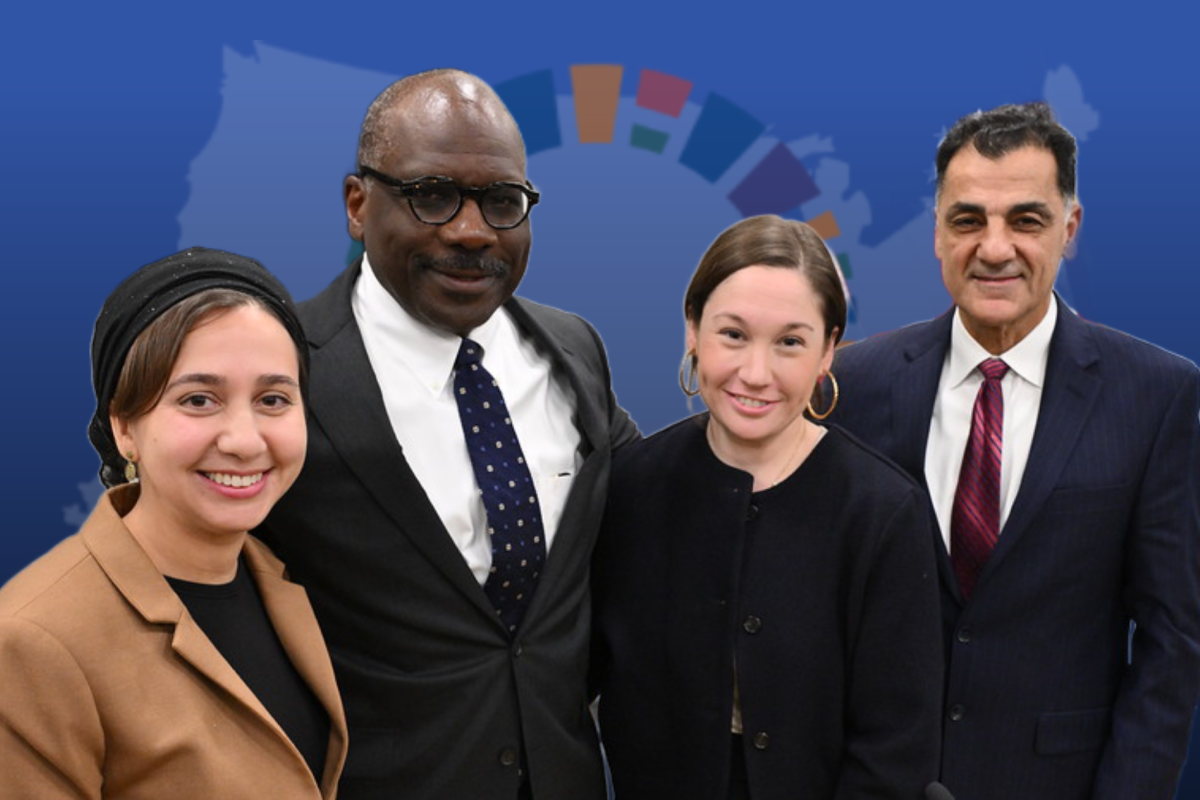
Jewish-Muslim Solidarity: Moral Witness in Pressing Times
Highlights from a Capitol Hill briefing on Jewish-Muslim solidarity as a defense against authoritarianism, featuring prominent Muslim and Jewish leaders and lawmakers. With discussion and inspiration from host Rev. Paul Brandeis Raushenbush and interfaith organizer Maggie Siddiqi.
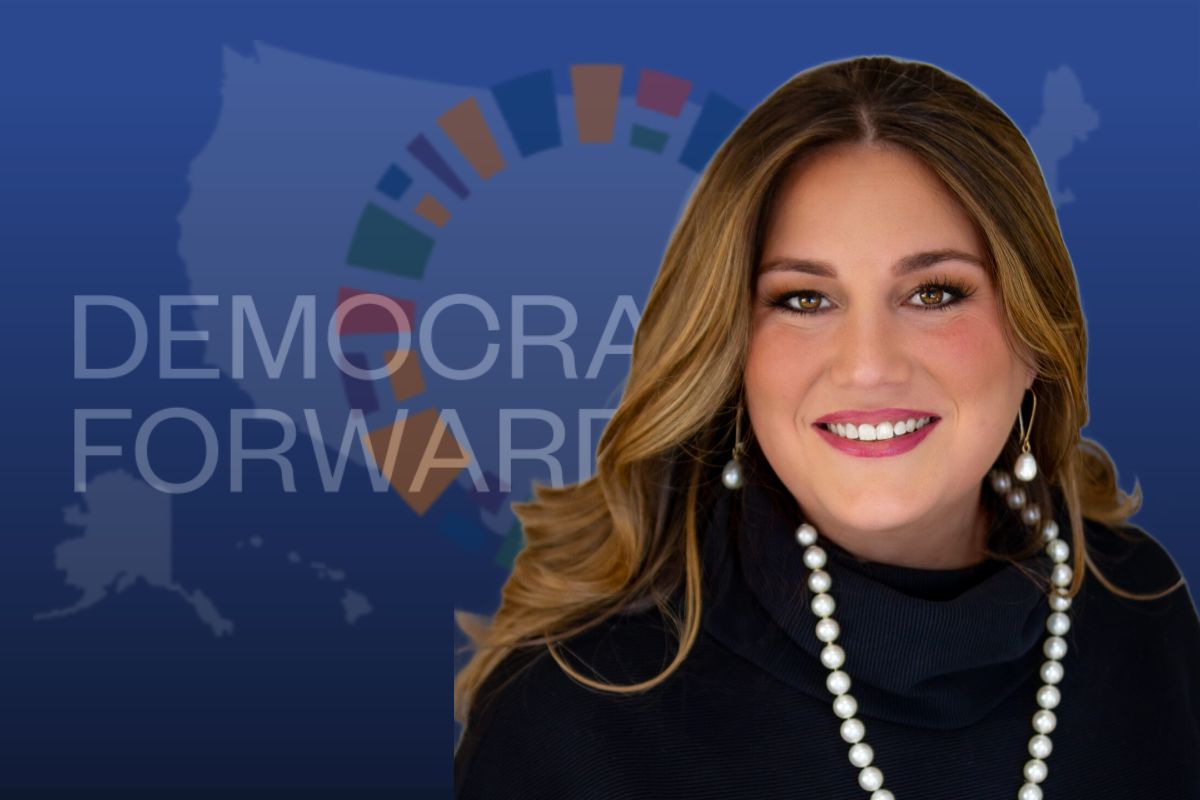
We The People v Trump with Democracy Forward's Skye Perryman
Host Paul Brandeis Raushenbush talks with Democracy Forward President and CEO Skye Perryman about the first year of the second Trump administration. Skye describes how, amid a flood of policies and orders emanating from the White House, Democracy Forward's attorneys have brought many hundreds of challenges in court - and have prevailed in a great majority of them.
